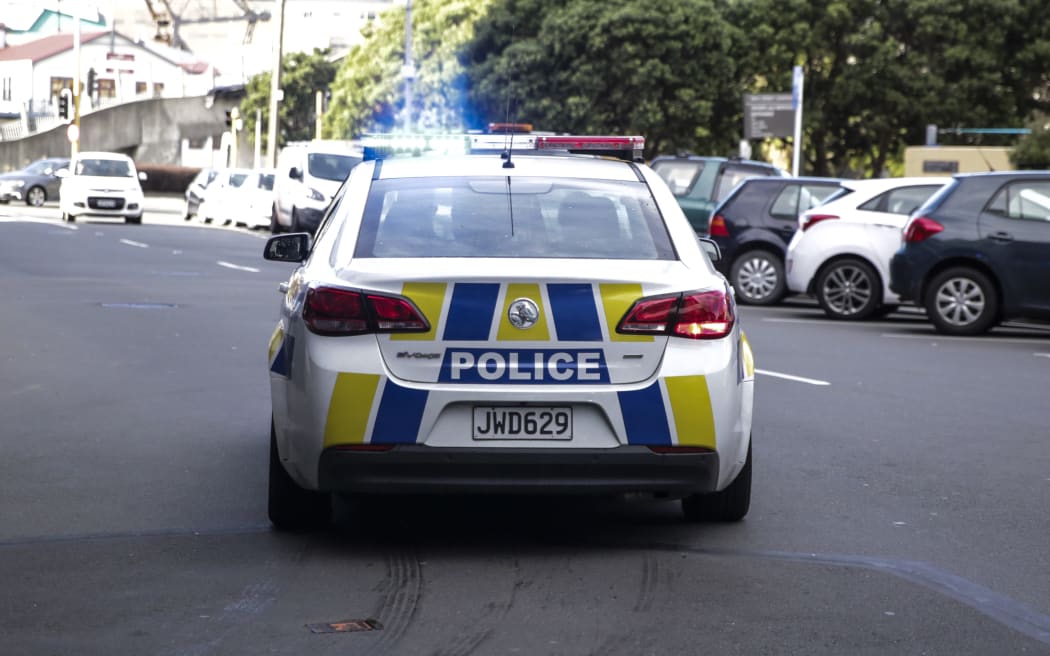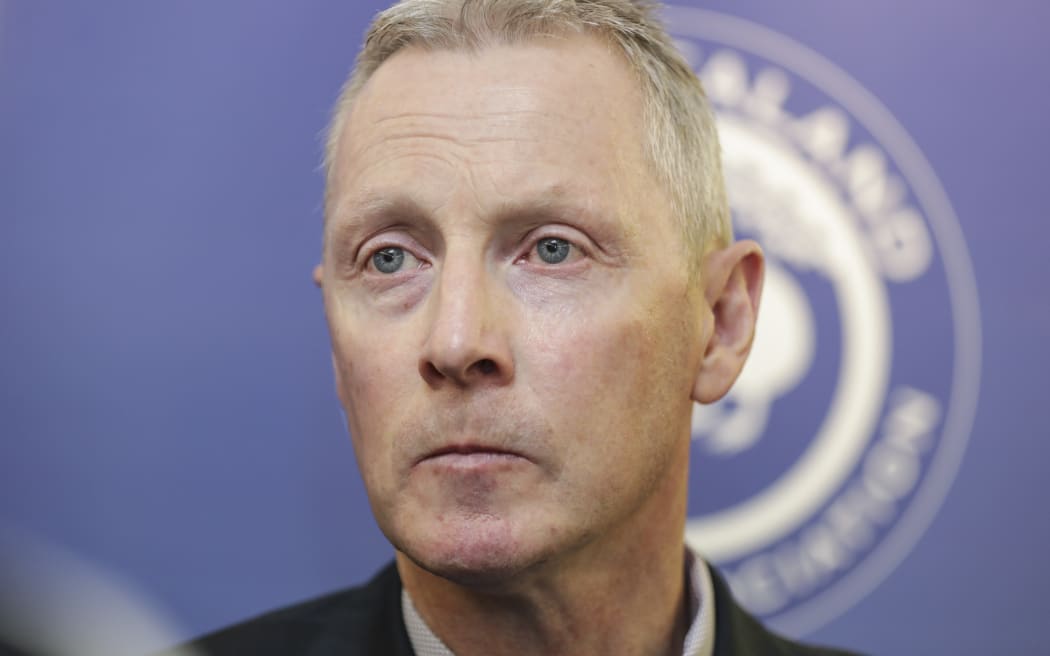
The new policy was "certainly more aggressive" than what it has been for the past two years, Police Commissioner Andrew Coster says. Photo: RNZ / Richard Tindiller
The Children's Commissioner does not think police pursuit policy should have changed, instead wanting the causes of offending addressed.
Police are using new rules to decide whether to pursue a fleeing driver in a change to a "more aggressive" policy.
The change will enable police to initiate more pursuits, Police Commissioner Andrew Coster said.
It was Māori and Pacific young people who this would impact most, Children's Commissioner Judge Frances Eivers told Morning Report on Tuesday.
"I know for a fact that Māori and Pacific young people, and I'm talking from a young people's perspective, not all adults, they're the ones who are generally targeted and they will continue to flee."
Help and resources need to be given to the communities these young people come from as a preventative measure, Eivers sai, and unless the cause of offending was addressed, it would continue.
"The police are the ambulance at the bottom of the cliff, aren't they? We need to actually identify... why are these young people committing these offences like this?
"Also generally from a mokopuna, from a young person's perspective, often they're pulled up by police for quite minor traffic offences but because of the mistrust of these young people, particularly Māori and Pacific, have of police, they will flee."

Children's Commissioner Judge Frances Eivers does not think police should have changed pursuit policy. Photo: Supplied
It was very dangerous to pursue young drivers and asking police to make a decision in the heat of the moment will always carry risks, she said.
"How can one tell in that situation?"
Up to 2020, police had pursued about 70 percent of drivers who fled, and following the change that proportion had halved.
"When police reviewed their policy in 2020 and sort of had a non-pursuit policy more or less, noticeably, fewer people died as a result of police pursuits," Eivers said.
It was not just the young person at risk but innocent bystanders and police themselves, she added.
"I understand the police position, they are clear that there's a need for their policy to tighten. I think that was considered, however as Children's Commissioner, I don't agree that it should have been changed."
Police energy should go into post-event investigation, she said.
"Many of the young people leave their fingerprints all over these cars - the evidence can be gathered, in my view."
Was the offence worth pursuing a young driver who was not thinking about the consequences and was not an experienced driver, she asked.
Eivers said she was consulted on the matter.
Police Association president Chris Cahill told Morning Report he believed the change was driven by public demand.
"The commission's been under considerable pressure, that police are seen to not be doing enough to catch these offenders, especially the big visible stuff we're seeing around ram raids, youth stealing cars, driving dangerously."
There was no perfect fleeing driver policy, he said.
"It's probably one of the most difficult issues I've sort of thought about in my whole time in policing.
"I think I'll be talking about this issue in a couple of years' time because of some incredibly unfortunate incident, and people will be saying, is the balance right? That's the change, trying to get a balance that pleases everyone - you're not going to."

Police Association members are split on whether the change in policy is a good thing, president Chris Cahill said. Photo: RNZ / Rebekah Parsons-King
About 35 percent of offenders were captured after the crime was committed, Cahill said.
Police were no longer allowed to take youth fingerprints.
When pursuits were dropped for three years, there was a 106 percent increase in people fleeing police, he said.
"But equally, we know that since this policy came in, the number of deaths has dropped. What is the balance the public want?"
Association members were split on the balance too.
"You can do it to the best intentions and pull out of the pursuit when things start to get too dangerous, but that can happen so quickly that you can't always judge it."






